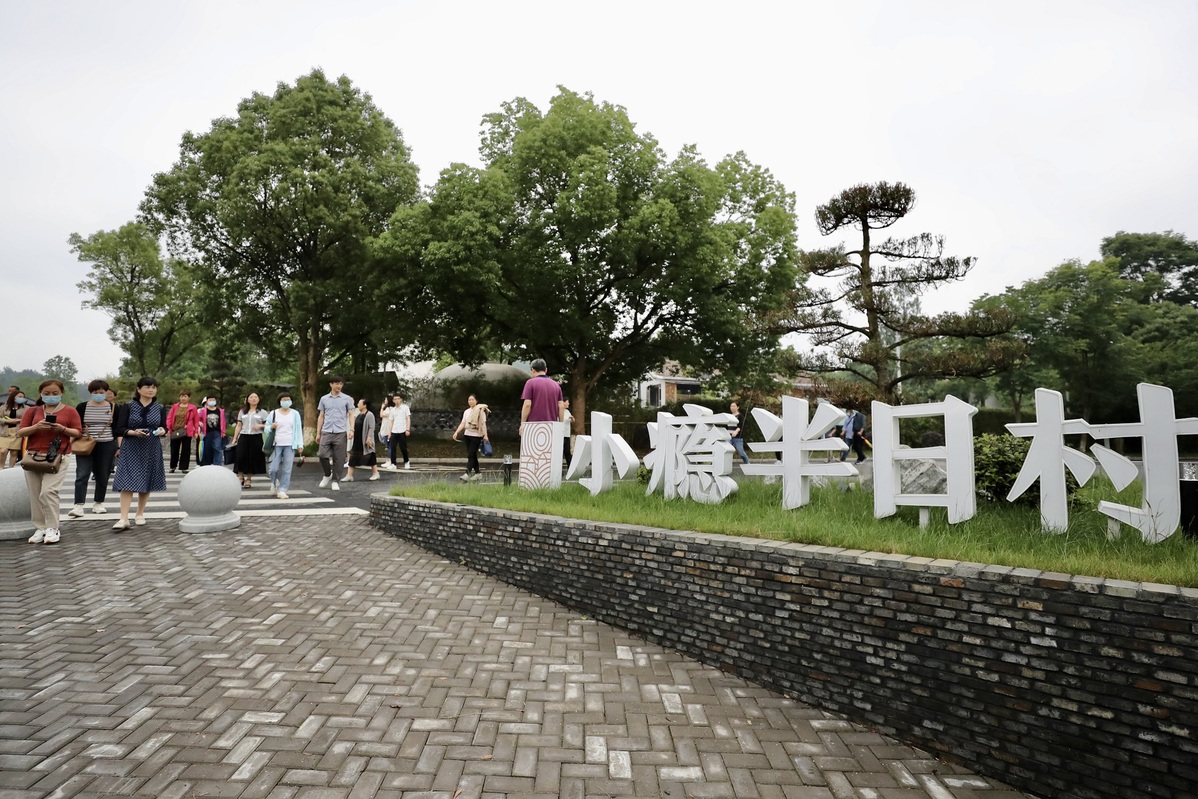Rural area shining example of development


The geography has underpinned Chen's design: he envisioned a hideaway serving urbanites who wish for a two-night respite from the hustle and bustle of city life.
A graduate from a renowned fine art school in Beijing and longtime freelance architect before returning to Anji in 2005, Chen said he was not a fan of bulldozing everything and starting from scratch. He has a fondness for the beauty of rural landscape, where building materials for homes, such as stones and timbers, are mostly sourced locally and blend into the environment.
He worked with a State-owned tourism company to buy the stand-alone farmhouses from villagers and moved their former owners to a nearby community.
Chen carried out a thorough evaluation of the 20 homes, renovated most of them for safety and aesthetic considerations, but largely kept their original looks. He also built some more to bolster the reception capacity.
Advertisements were posted to recruit "tenants" to run businesses inside the farmhouses, such as homestays, restaurants and dress shops, and also venues including a library and a swimming pool.
Chen screened and ended up with 35 business owners, who are from a mix of regions, from the inland city of Xi'an to Hong Kong.


















